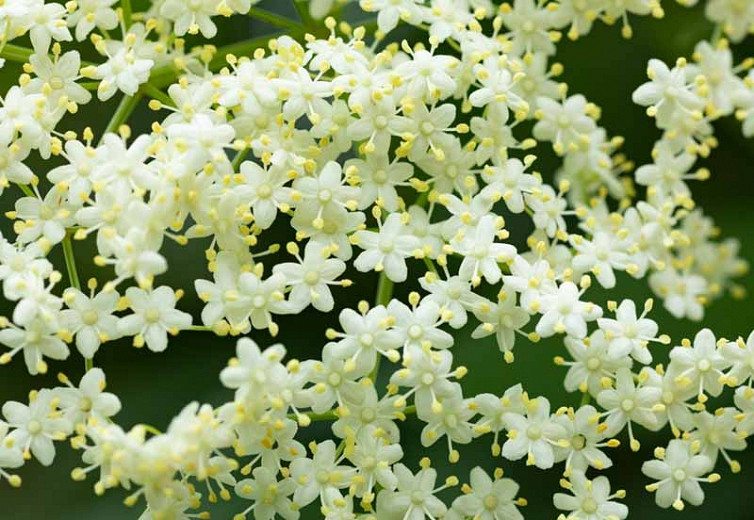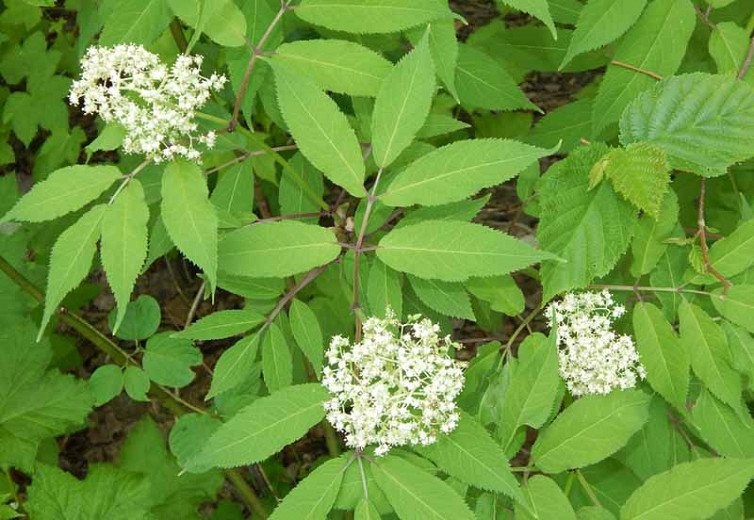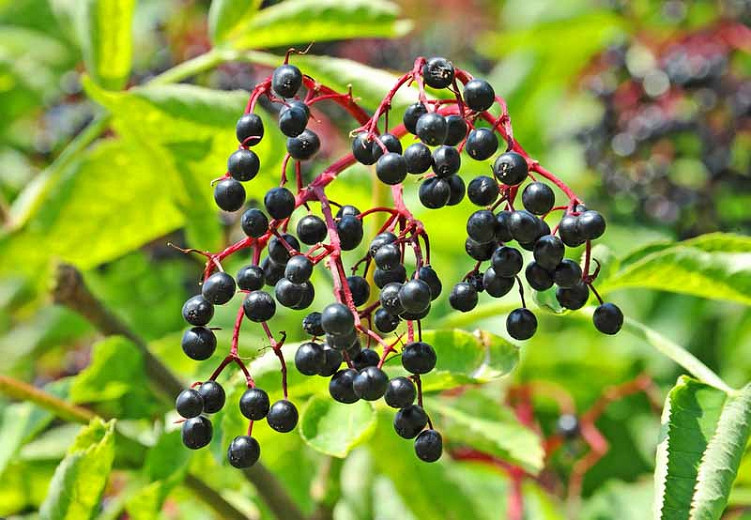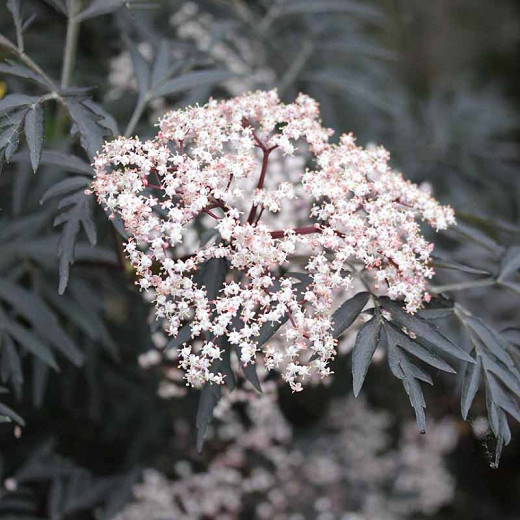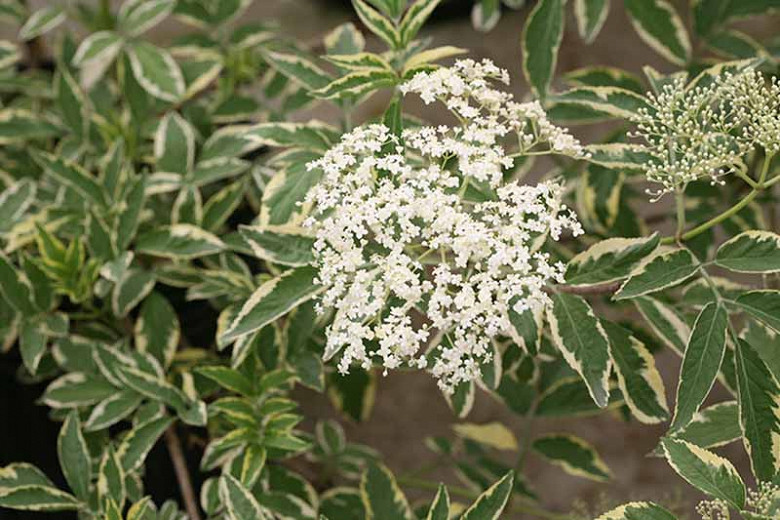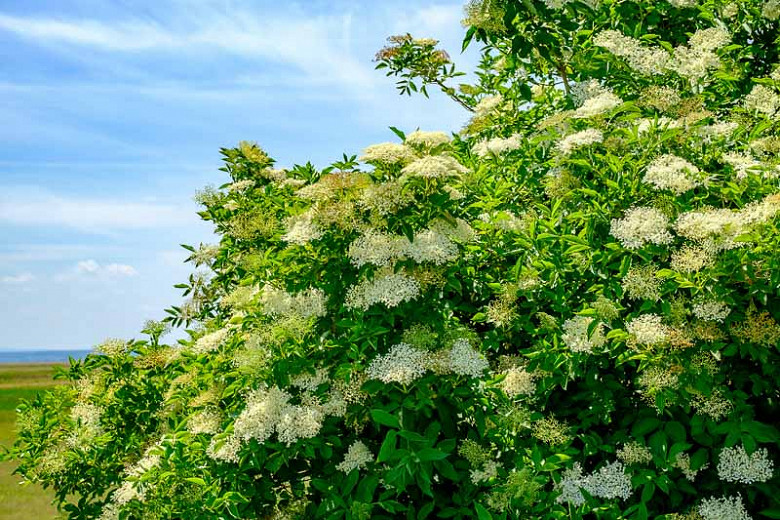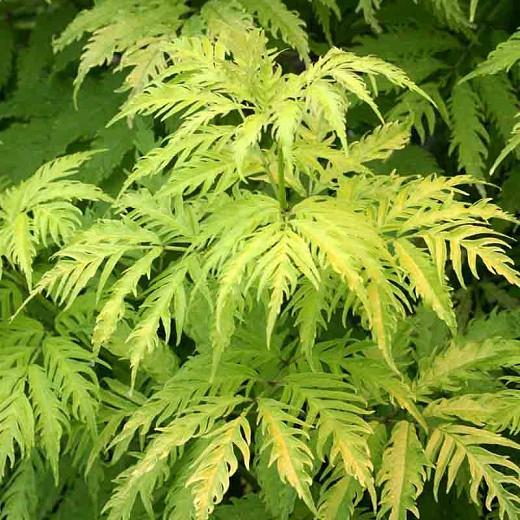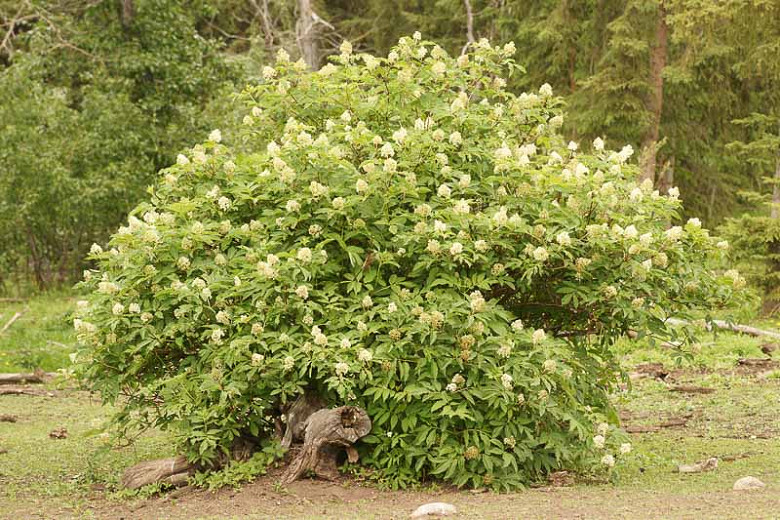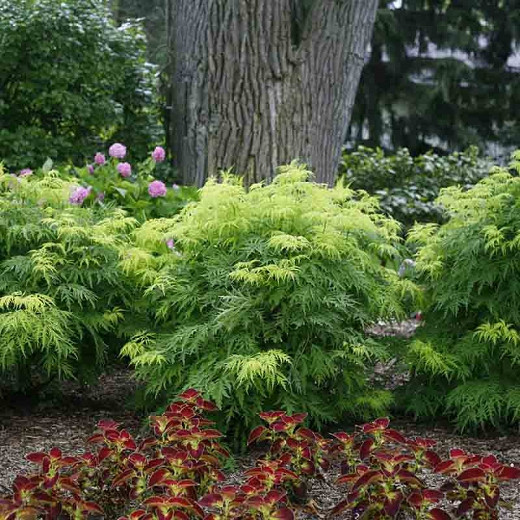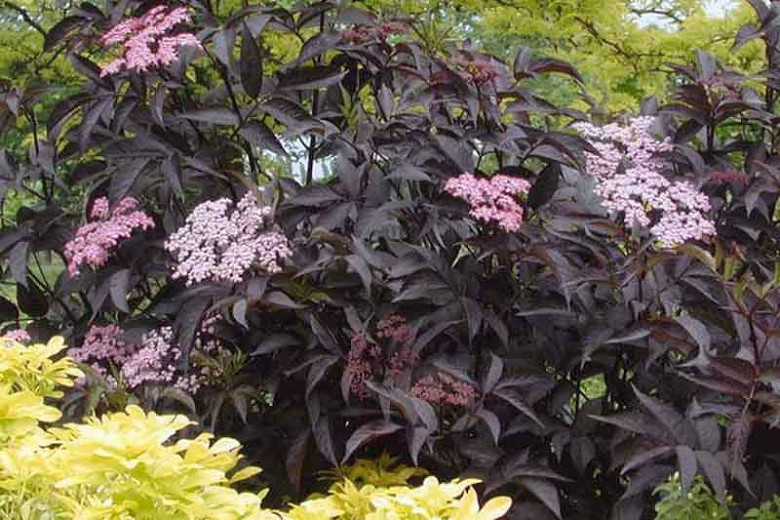Sambucus canadensis (American Elder)
Sambucus canadensis (American Elder) is a multi-stemmed deciduous shrub of loose open habit with arching, spreading branches, clothed in the lush foliage of sharply serrated, bright green leaves composed of 7 leaflets. In early to mid-summer, a profusion of lemon-scented white flowers appear in large flat clusters.
Sambucus canadensis (American Elder) is a multi-stemmed deciduous shrub of loose open habit with arching, spreading branches, clothed in the lush foliage of sharply serrated, bright green leaves composed of 7 leaflets. In early to mid-summer, a profusion of lemon-scented white flowers appear in large flat clusters. They give way to black elderberry fruits later in the season. Attractive to birds, the fruits may be used to make jams, jellies, and elderberry wine. Good shrub for naturalized areas where suckering spread may be appreciated.
- Grows up to 5-12 ft. tall and wide (150-360 cm). Spreads freely by root suckers to form colonies.
- Performs best in full sun or part shade, in medium to wet, well-drained soils. Best foliage color when grown in full sun. Drought tolerant.
- Excellent choice as a single specimen plant, informal screens, or hedges.
- May be subject to verticillium wilt and aphids. Deer resistant.
- Propagate by softwood cuttings in early summer or hardwood cuttings in winter.
- Prune hard in spring to maintain the best foliage and habit.
- This plant has low severity poison characteristics. All parts may cause discomfort if ingested, although the berries can be edible if cooked.
- Toxic to horses, toxic to humans.
- Native to North America
Requirements
| Hardiness | 3 – 9 |
|---|---|
| Heat Zones | 1 – 9 |
| Climate Zones | 1, 1A, 1B, 2, 2A, 2B, 3, 3A, 3B, 4, 5, 6, 7, 14, 15, 16, 17, A1, A2, A3 |
| Plant Type | Shrubs |
| Plant Family | Sambucus – Elder |
| Exposure | Full Sun, Partial Sun |
| Season of Interest | Summer (Early,Mid) |
| Height | 5' – 12' (150cm – 3.6m) |
| Spread | 5' – 12' (150cm – 3.6m) |
| Spacing | 60″ – 144″ (150cm – 360cm) |
| Water Needs | Low, Average |
| Maintenance | Average |
| Soil Type | Chalk, Clay, Loam, Sand |
| Soil pH | Acid, Alkaline, Neutral |
| Soil Drainage | Moist but Well-Drained |
| Characteristics | Fragrant, Showy, Fruit & Berries |
| Native Plants | United States, California, Midwest, Illinois, Indiana, Iowa, Kansas, Michigan, Minnesota, Missouri, Nebraska, North Dakota, Ohio, South Dakota, Wisconsin, Northeast, Connecticut, Delaware, Maine, Massachusetts, Maryland, New Hampshire, New Jersey, New York, Pennsylvania, Rhode Island, Vermont, Rocky Mountains, Colorado, Montana, Wyoming, Southeast, Alabama, Arkansas, Florida, Georgia, Kentucky, Louisiana, Mississippi, North Carolina, South Carolina, Tennessee, Virginia, West Virginia, Southwest, Arizona, New Mexico, Oklahoma, Texas |
| Tolerance | Clay Soil, Wet Soil |
| Attracts | Birds, Butterflies |
| Garden Uses | Beds and Borders, Hedges and Screens, Rain Gardens |
| Garden Styles | Informal and Cottage |
